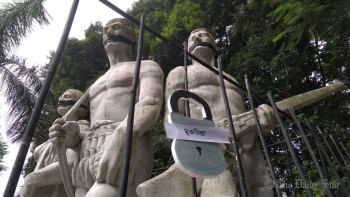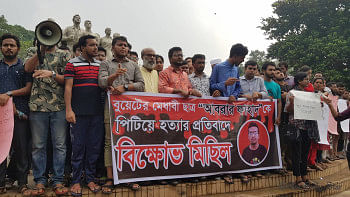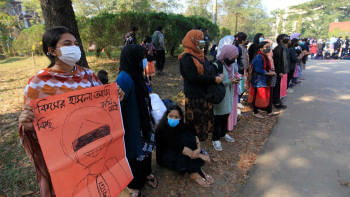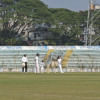What now after the mass VC resignations?

Since the fall of the Awami League government in a mass uprising led by students, an unusually high number of vice-chancellors of public universities—at least 13 so far—have stepped down in the face of pressure from students and fellow teachers. Along with the VCs, many top officials including provosts and members of proctorial bodies have also resigned. For instance, all the members of the proctorial bodies of Dhaka University (DU), Shahjalal University of Science and Technology (SUST) and Jagannath University (JnU)—as well as several other key position holders in these universities—have submitted their resignation letters.
Understandably, the list will become longer in the coming days. In hindsight, the mass resignations were bound to happen since most top officials in public universities were appointed on political considerations by the previous government. There is now hope that these vacancies, including the all-too-important VC positions, will be filled by capable and honest individuals following due procedure. However, this cannot happen in a vacuum; it is vital that new appointments are made as part of a wider reform agenda that will ensure improved academic activities, academic freedom, and students' safety in the universities, and establish a culture where teachers and students are not bogged down by the bad influences of politics.
Over the past decades, we have seen how the student wings of major political parties, most notably Chhatra League, created an atmosphere of fear on our campuses. From taking control of the residential halls—thus effectively making the posts of provosts redundant by allotting the seats themselves—to engaging in seat trades, from forcing students to take part in political rallies to torturing them for not abiding by their diktats, the BCL's terrorising tactics have totally ruined the academic environment of universities. And despite frequent criticism of the obnoxious "Gono room" culture, university authorities did not take any action to stop it.
So, establishing a violence-free environment by ensuring the safety of students in residential halls and campuses should be a top priority for the incoming administrations. Students have also demanded a ban on partisan student politics; some public universities and medical colleges have already imposed such a ban. We expect a prudent decision on this as well as on teachers' politics from the authorities. We would also like to see a transparent teachers' recruitment process, freed of any political influence, so that only the competent and dedicated are hired to build our future leaders.
Modernising the curriculum and academic activities should also be a priority going forward. While creating new knowledge should be the aim of our universities, few put enough emphasis on this presently. This needs to change. The authorities need to increase the budgetary allocation for research activities in universities. Moreover, the need for academic freedom of both teachers and students cannot be overstated. These are but a few of the reforms we expect from the authorities in the future. Our students deserve nothing less.

 For all latest news, follow The Daily Star's Google News channel.
For all latest news, follow The Daily Star's Google News channel. 











Comments